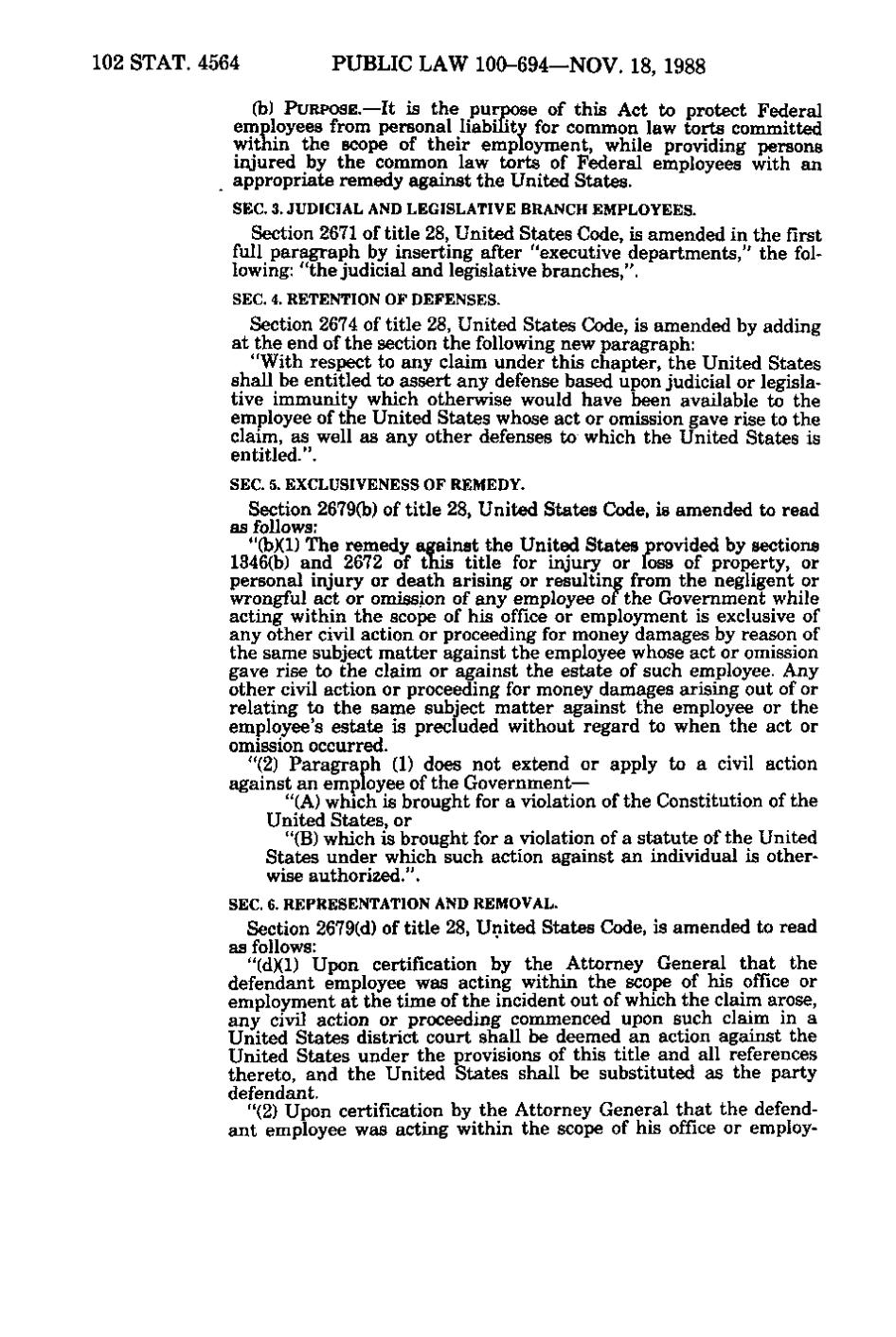102 STAT. 4564
PUBLIC LAW 100-694—NOV. 18, 1988
(b) PURPOSE.—It is the purpose of this Act to protect Federal employees from personal liability for common law torts committed within the scope of their employment, while providing persons injured by the common law torts of Federal employees with an appropriate remedy against the United States. SEC. 3. JUDICIAL AND LEGISLATIVE BRANCH EMPLOYEES.
Section 2671 of title 28, United States Code, is amended in the first full paragraph by inserting after "executive departments," the following: "the judicial and legislative branches,". SEC. 4. RETENTION OF DEFENSES.
Section 2674 of title 28, United States Code, is amended by adding at the end of the section the following new paragraph: "With respect to any claim under this chapter, the United States shall be entitled to assert any defense based upon judicial or legislative immunity which otherwise would have been available to the employee of the United States whose act or omission gave rise to the claim, as well as any other defenses to which the United States is entitled.". SEC. 5. EXCLUSIVENESS OF REMEDY.
Section 2679(b) of title 28, United States Code, is amended to read as follows: "(b)(1) The remedy against the United States provided by sections 1346(b) and 2672 of this title for injury or loss of property, or personal injury or death arising or resulting from the negligent or wrongful act or omission of any employee of the Government while acting within the scope of his office or employment is exclusive of any other civil action or proceeding for money damages by reason of the same subject matter against the employee whose act or omission gave rise to the claim or against the estate of such employee. Any other civil action or proceeding for money damages arising out of or relating to the same subject matter against the employee or the employee's estate is precluded without regard to when the act or omission occurred. "(2) Paragraph (1) does not extend or apply to a civil action against an employee of the Government— "(A) which is brought for a violation of the Constitution of the United States, or "(B) which is brought for a violation of a statute of the United States under which such action against an individual is otherwise authorized.". SEC. 6. REPRESENTATION AND REMOVAL.
Section 2679(d) of title 28, United States Code, is amended to read as follows: "(d)(1) Upon certification by the Attorney General that the defendant employee was acting within the scope of his office or employment at the time of the incident out of which the claim arose, any civil action or proceeding commenced upon such claim in a United States district court shall be deemed an action against the United States under the provisions of this title and all references thereto, and the United States shall be substituted as the party defendant. "(2) Upon certification by the Attorney General that the defendant employee was acting within the scope of his office or employ-
�
